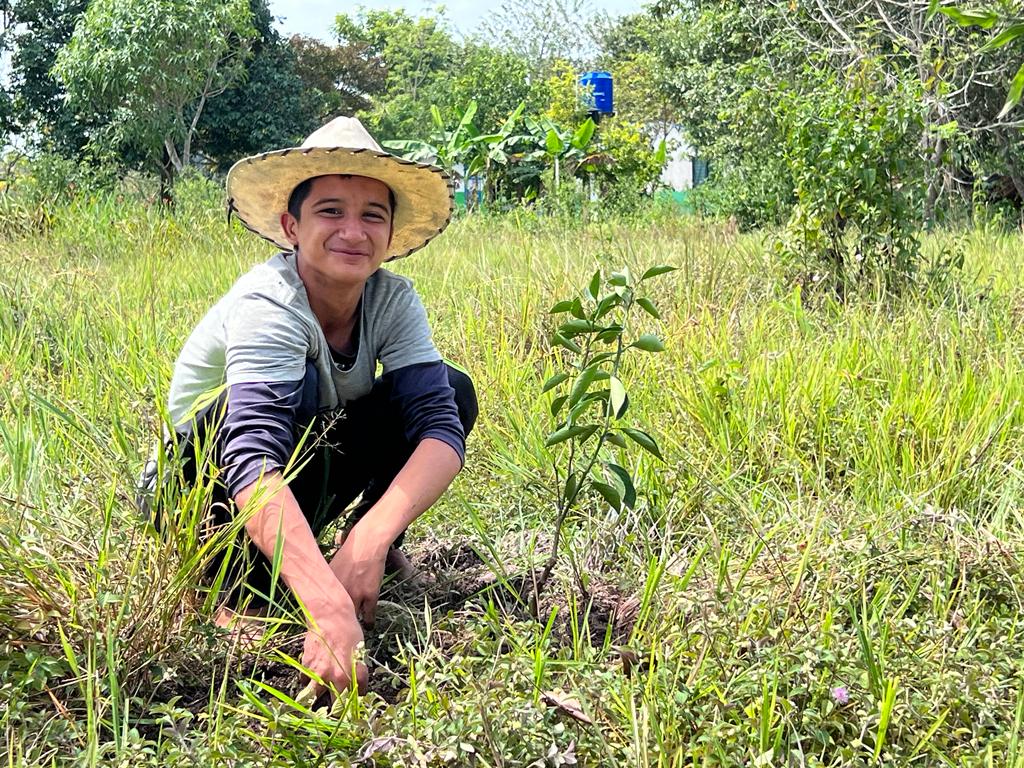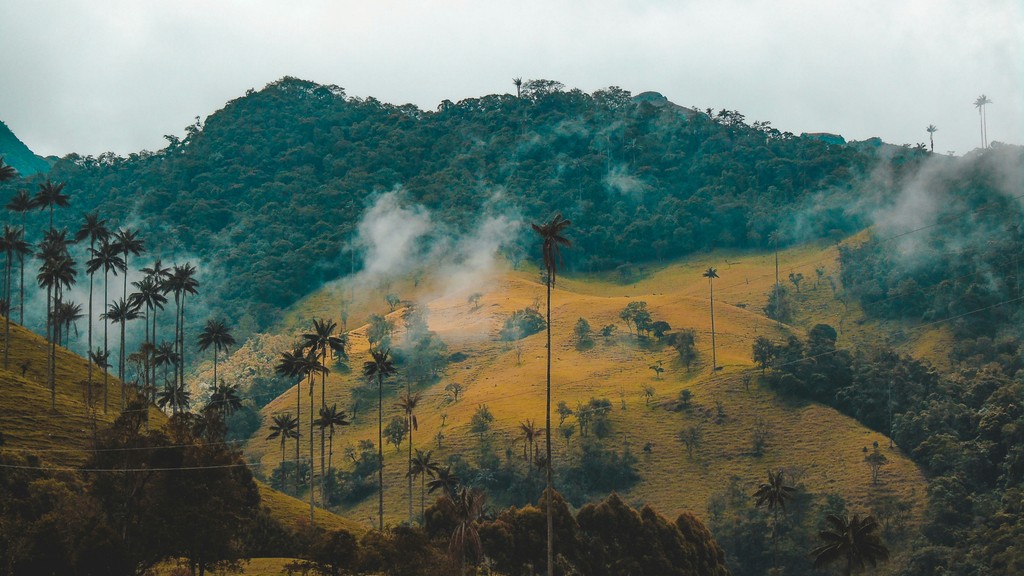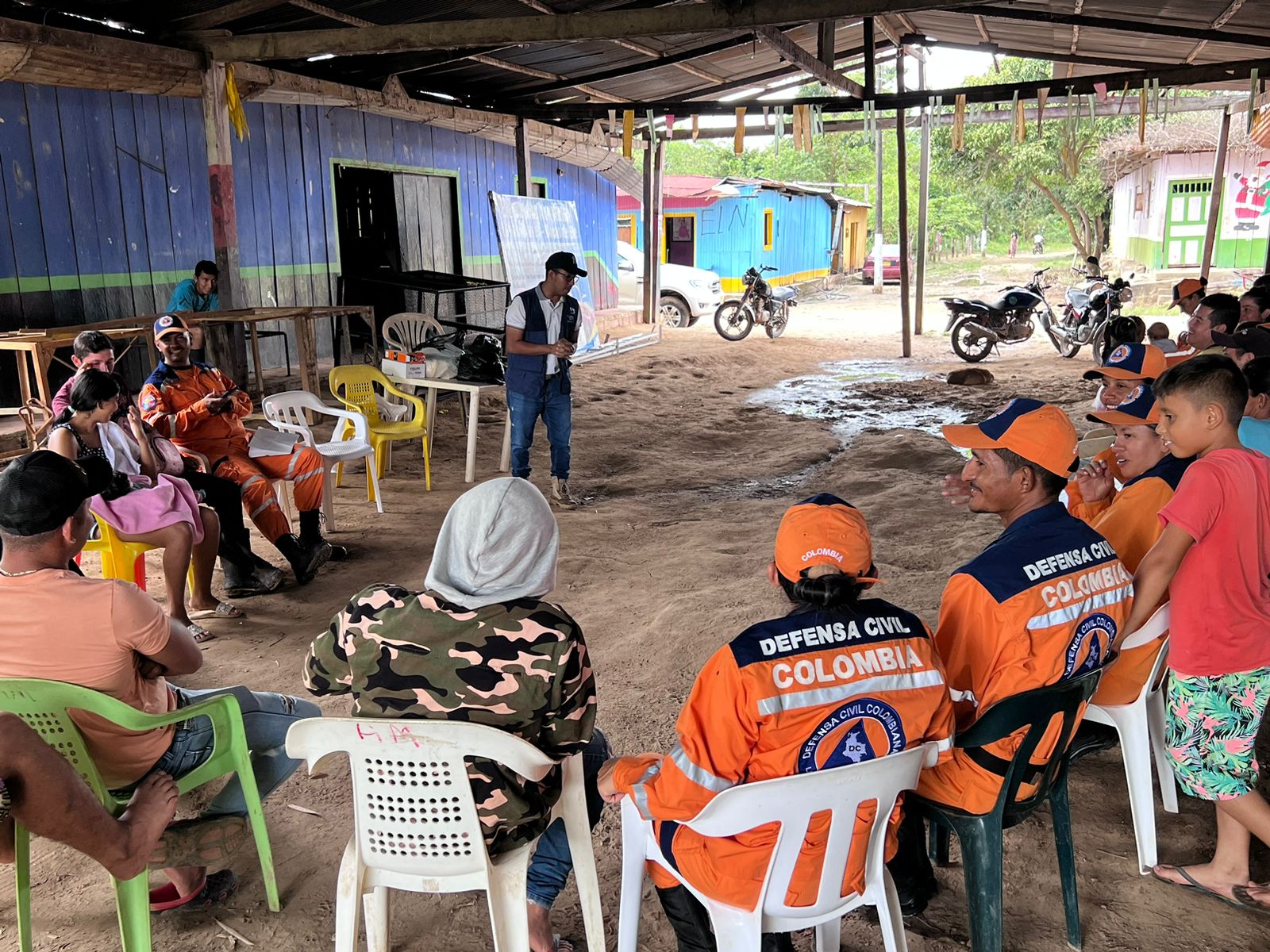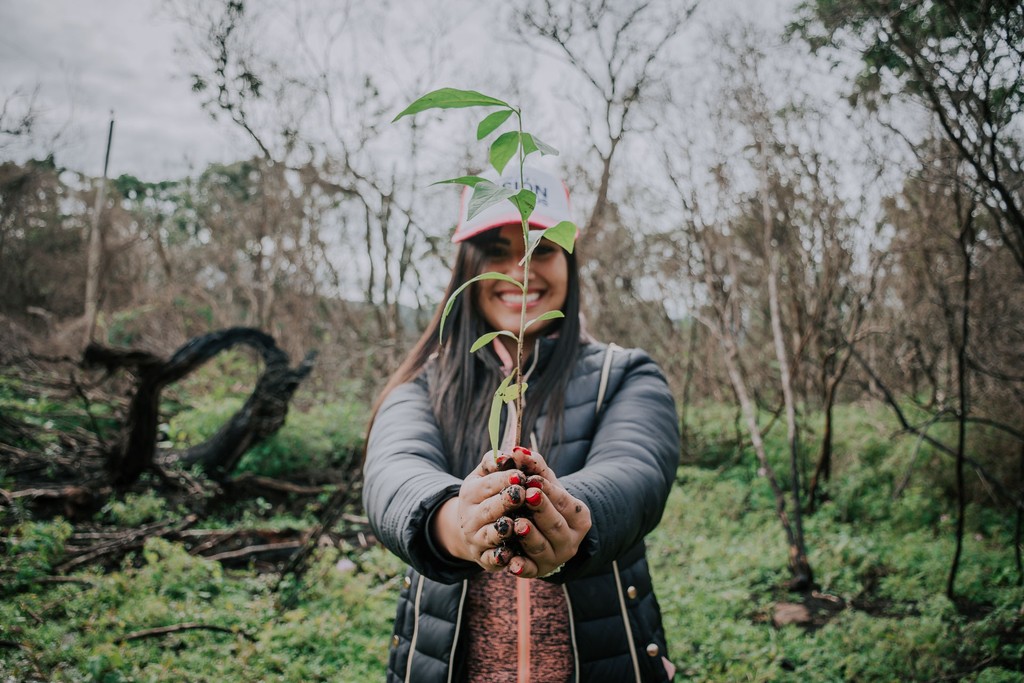Compilation of Climate Justice Advocacy
Good Practices of Local to Global Action
PROJECT DURATION
2014 to 2024
BUDGET AND FUNDING
EUR 130,000 by ACT Church of Sweden, Finnish Evangelical Lutheran Mission, and Evangelical Lutheran Church in America
SNAPSHOT
In this initiative, The Lutheran World Federation strengthened communities striving for their environmental rights in the Arauca department by reinforcing citizen participation mechanisms, defending their territories, and promoting environmental awareness and education within the region. Ultimately, the project contributed to finding alternative methods to reduce and eliminate degrading practices and mitigate their negative impacts.
With 250 direct beneficiaries and 17,000 indirect beneficiaries, this project has brought together local farmers residing within the oil complex to undertake reforestation and land-recovery initiatives. The Communities of Arauca in Defense of the Territory and the Environment initiative addressed adaptation, mitigation, and climate justice advocacy.
IMPLEMENTATION
Lutheran World Federation, Colombia and Venezuela World Service Country Program
Arauca is currently experiencing a post-conflict scenario, primarily related to the exploitation of natural resources. These conflicts include inhabitant pressure on extractive industries to employ local labor, the destruction of entire ecosystems by oil companies without sufficient control from environmental authorities, and the displacement of communities with reparations perceived as unfair by the affected population.
In this context, new conflicts may emerge due to issues related to access to and appropriation of natural resources. In particular, the damage and disappearance of the Lipa ecosystem is one of the most relevant socio-environmental conflicts in eastern Colombia.
This situation arises directly from inappropriate agricultural production practices and an extractive development model. It is further exacerbated by inadequate environmental governance and an unfavorable environmental context.
The detrimental practices have raised concerns among communities, prompting them to take direct action to prevent, mitigate, and restore the damages caused to the ecosystem.
Community education, sensitization, and capacity-building
The community played a vital role in identifying the problem at hand. The local committees, operating in various territories, effectively identified, highlighted, and promoted good practices independently.
In this context, the capabilities of the five environmental committees of the Lipa lagoon were strengthened, in areas such as:
The application of the “Todo Derecho” methodology, which involved identifying cultural, social, and economic impacts derived from the presence of the extractive company (learning about rights and how they are affected).
Good agroecological practices for land care, especially with land preparation and cultivation.
Organic waste utilization, including recycling and reuse of waste.
This enabled them to identify the problem more effectively and determine appropriate scenarios in which to raise awareness. All these efforts were aimed at fostering organizational and social cohesion within a challenging context characterized by armed conflict.
On the other hand, the LWF organized multiple environmental conservation trainings and developed a “Booklet of Good Environmental Practices in Rural Arauca” aimed at mitigating the adverse environmental effects resulting from traditional practices. The primary objective was to enhance the handling and management of environmental impact caused by unsustainable methods.
Despite the presence of an oil company in the region and the challenge of the Lipa lagoon drought, the community received continuous support, which enabled them to regain access to their territory. Moreover, they successfully integrated agroecological techniques into their cultivation of cocoa, plantain, and corn, leading to the restoration of their livelihoods.
Multistakeholder approach
Throughout the project, various agreements and conventions were established with different organizations and institutions, enabling collaboration to create a more substantial impact and advocacy. One notable agreement was made in 2019 with the Information Centre on Business and Human Rights (CIEDH).
Additionally, specific collaborations were undertaken with environmental committees in Lipa, along with other prominent organizations like the Association of Councils and Traditional Authorities of the Department of Arauca (ASCATIDAR), the Joel de Sierra Human Rights Foundation, and the Permanent Committee for Human Rights of Arauca (CPDH) to raise awareness and denounce human rights issues.
Moreover, CAMPROLIPA, ASOJUNTAS, and MOCIPAR maintained relations with several entities, including the environmental authority of the area, CORPORINOQUIA (the environmental authority of the area), the Ombudsman‘s Office, the Health Unit of Arauca, the Departmental Assembly, the mayors’ offices of Arauca, Saravena, Tame, Puerto Rondón, and Arauquita, and the Government of Arauca. Collaborations were also extended to include the Unión Sindical Obrera (USO), various non-governmental organizations, and educational institutions such as the Fundación Orinoquia Biodiversa, Social Ministry, the National University of Colombia – Orinoquía Campus, and the Observatory of Environmental Conflicts, part of the Institute of Environmental Studies at the same university in Bogota.
Through these collaborations, the member organizations have consistently recognized the vital role played by both CAMPROLIPA and the LWF, enhancing their status as authorities in the field and strengthening their advocacy efforts.
Advocacy and visibility
The project addressed various advocacy initiatives at the local, national, and international levels.
In 2016, the LWF coordinated a forum in Arauca, “Arauca: An Ecosystem at Risk”, which convened local authorities, institutions, and community members. Its main objective was to hear various positions and proposals regarding environmental conflicts, that affect the department of Arauca, especially the ecosystem made up of its estuaries, the river, and the Lipa lagoon.
Likewise, the project received significant coverage on various social media platforms, including Meridiano 70, Crudo Transparente, Publimetro, and Las2Orillas, implementing numerous mechanisms addressing the problem of visibility, including establishing a guardianship in 2018 and introducing community alerts within the ombudsman’s office. These efforts extended beyond local measures and encompassed legal avenues.
Local to Global to Local Approach
The project included several trainings and workshops to enhance the community’s resilience. This was achieved through professionals who actively participate in national and international discussions on corporate responsibility concerning human rights and the potential for obtaining reparations through civil society organizations. Additionally, the experts participating in workshops and trainings conform with national and global environmental guidelines, encompassing sustainability and technical considerations.
The dedication to reforestation practices has fostered a stronger bond with the local indigenous communities, as the Mbyá-Guaraní people share a similar worldview, that prioritizes the preservation and restoration of the native forest.
The population consisted mainly of rural communities that were influenced by fluctuations in water currents, likefloods and droughts, and changes in local biodiversity, which threaten their food security, and the gradual loss of farm productivity.
There were 250 direct beneficiaries and 17,000 indirect beneficiaries. The environmental committees of Lipa and the villages under their jurisdiction, along with the associations of Community Action Boards in the rural areas of Arauca and Arauquita, and, to a lesser extent, communities in Fortul, Saravena, and Puerto Rondón, were considered. Organizations affiliated with the Board of Civic and Popular Organizations of Arauca (Mocipar) and the committees advocating for popular consultation in the aforementioned municipalities were also considered.
The entire population of the municipalities participated in the popular consultation processes and environmental impact studies. This involved a total of 186,741 individuals from the municipalities of Arauca, Arauquita, Puerto Rondón, Fortul, and Saravena, who have indirect connections with the water regime of the Lipa estuary.
“Despite the challenges posed by the forced recruitment of young individuals into the armed forces, we were able to achieve the goal of engaging fifteen young people in active participation, as set for the year 2023. Additionally, during the four-year project period, we successfully achieved the target of involving forty-five young people in active participation. We encourage the engagement of women, men, and children, striving to tailor our methodologies to suit the specific needs of these diverse population groups. In this particular context, the impact of armed conflict and recruitment predominantly affects men, while women tend to remain in the territory. Despite the deeply patriarchal cultural backdrop in the area, it is noteworthy that women leaders currently exist in Lipa. These leaders hold equal positions, yet women predominantly voice the opinions and assume representational roles.” (Erika Andrea Carvajal, PME&Q Coordination Colombia and Venezuela Program; Steffany Marimon Vidal, Project Professional PME, LWF World Service Colombia Program)
1.
The consolidation of five permanent committees was undertaken, and their organizational capacity was strengthened through affiliation.
2.
Individuals returned to the region, signifying their reintegration and settlement within the oil complex. They also embraced agroecological principles in cultivating cocoa, plantain, and corn, thus preserving their previous way of life.
3.
The communities now possess a comprehensive understanding of the various factors contributing to social issues and human rights violations.
4.
Professional expertise and technical organizations have been integrated with the communities' indigenous ancestral knowledge, traditional farming practices, and Afro-descendant wisdom.
5.
Technical and scientific evidence has been generated on the environmental impact caused by oil projects in the area of influence of the Estero del Lipa.
6.
Effective forums have been established to serve as negotiation platforms within the framework of the enforceability and justiciability of human rights, aiming to address problems and violations.
7.
The issue has gained widespread recognition at the local, national, and international levels, with participation from government entities such as the ombudsman’s office.














